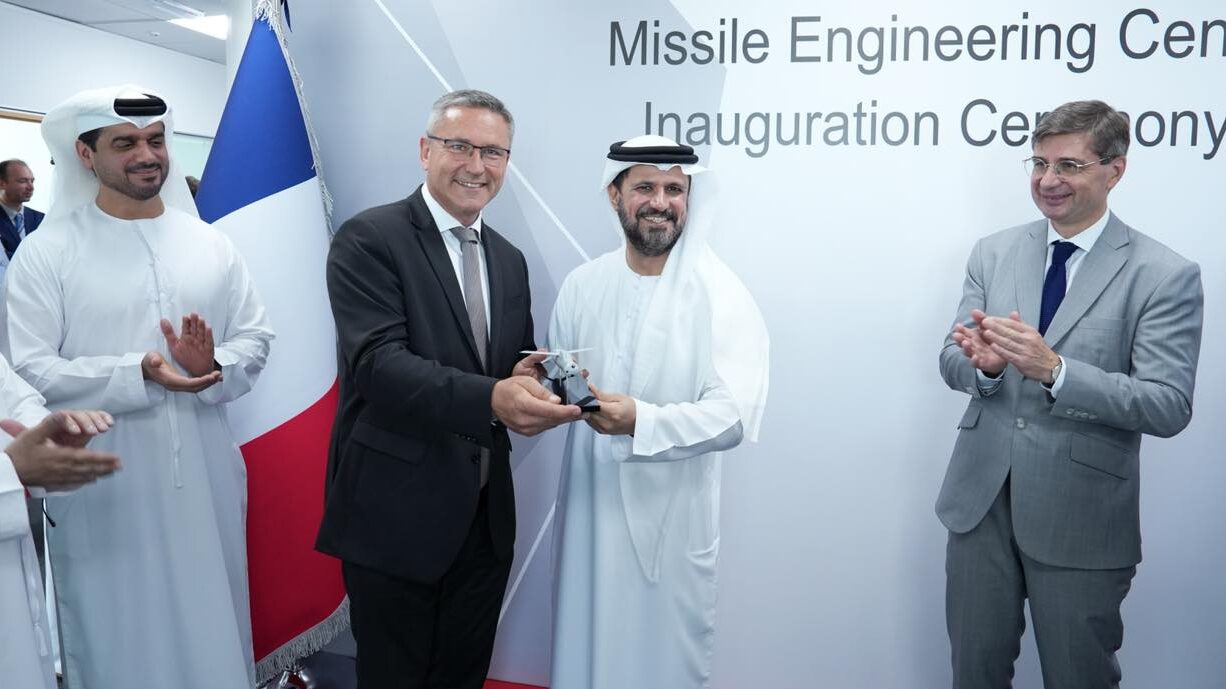
BEIRUT — With indigenous missile production in mind, European missile producer giant MBDA has opened a Missile Engineering Center in Abu Dhabi, the first of its kind outside Europe, the firm announced today.
The center will be operated by a joint team of engineers from Tawazun Technology Innovation and MBDA to codevelop the “next generation of Smart Weapons family,” according to a statement by the firm. It’s an announcement which analysts say could greatly boost the UAE’s domestic missile production capabilities, as well as its technical know-how.
“Opening a missile engineering center in the UAE is precisely the sort of partnership which Emirati leaders seek in terms of developing and deepening long-term links which can contribute to localization of research, job creation, and technology transfer, all in support of strategic economic diversification,” Kristian Coates Ulrichsen, a fellow for the Middle East at Rice University’s Baker Institute, told Breaking Defense.
He added that this center is likely to facilitate and speed up UAE missile production and further establish the UAE at the forefront of defense production in the Gulf.
“This inauguration is a major landmark for us at MBDA and an illustration of the importance of our local presence and cooperation with our partner Tawazun Council. This unique cooperation is the very symbol of what we aim to achieve with our partner Tawazun Council in the UAE, projecting ourselves in the long term to make our collaboration a win-win and a symbol of our involvement in the region,” said Eric Béranger, Chief Executive Officer of MBDA, in a statement.
RELATED: UAE’s Tawazun, MBDA To Develop SmartGlider Missiles
The center is expected to reinforce UAE’s sovereign capabilities and defense production, as per the firm’s statement.
From his side, secretary General of Tawazun Council Tareq Al Hosani, said in a statement, “This center represents our commitment to enabling the UAE’s defense industry. The Missile Engineering Center is a testament to the successful collaboration between Tawazun Council and MBDA, and it symbolizes our shared vision for long-term cooperation and mutual growth in the region.”
Mohammed Baharoon, general director of B’huth, a Dubai-based public policy research center, noted that this kind of deal lines up with the goal of the UAE to gain technical knowledge by partnering with foreign firms.
“Knowledge transfer and production is the name of the game. This agreement will make European countries and UAE cross a new threshold. Mutual development is already happening in the arena of space and climate change. It should also happen in the area of defense. If the UAE is not considering contributing to the tech then its investment would be flawed,” Baharoon told Breaking Defense.
Under its Vision 2030 plan, Abu Dhabi has worked hard to localize defense production within the country, pushing international defense firms to either enter joint ventures with Edge Group, UAE’s defense conglomerate, or cooperating in development and IP production with Tawazun Council.
“By having a locally based center dedicated to missile engineering, the UAE can achieve greater strategic autonomy. It would allow the country to have control over the development, production, and customization of missile systems according to its specific needs and requirements,” Kristian Alexander, a senior fellow and head of the Strategic Studies department at the TRENDS research and advisory think tank in the UAE, told Breaking Defense.
He added that developing a strong missile engineering capability can enhance the UAE’s regional influence in terms of defense and security. “It would allow the country to offer advanced missile systems to regional partners, strengthening diplomatic and military ties,” Alexander said.
Asked whether the missiles developed by this center will compete with the missiles produced by UAE’s Edge group, Alexander noted that the new agreement is focused on weapons “distinct’ from Edge’s efforts, and could serve as a “complementary” deal.
“In this scenario, both entities can work in parallel, leveraging their respective expertise to develop a diverse range of missile systems that cater to different requirements,” Alexander said.
He expected that in this case, there could be opportunities for collaboration between the Missile Engineering Center and Edge subsidiaries and for both Emirati entities to share knowledge, expertise, and resources to accelerate the development of advanced missile technologies.
“Collaboration could lead to synergies, cost-sharing, and the ability to leverage each other’s strengths to develop more sophisticated and effective missile systems,” Alexander highlighted.
He concluded that if they target the same market this could lead to competition. “However, healthy competition can also drive innovation and technological advancements,” Alexander concluded.

